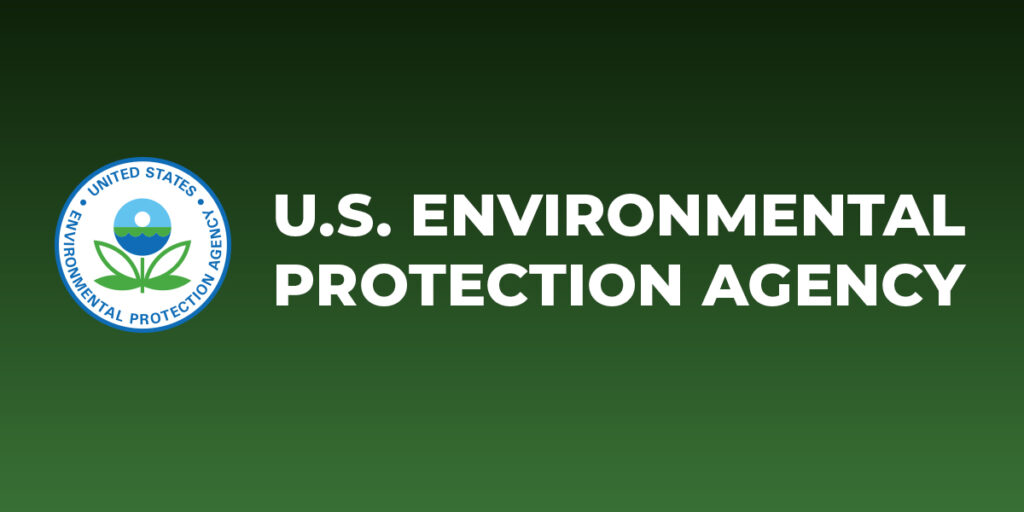 (AGENPARL) - Roma, 23 Ottobre 2023
(AGENPARL) - Roma, 23 Ottobre 2023(AGENPARL) – lun 23 ottobre 2023 Issued: Oct 23, 2023 (10:49am EDT)
If you wish to unsubscribe please do so
here: http://url6130.epa.mediaroom.com/ls/click?upn=-2BroytcZInNRyuFbAvAoN5aMEQDHIx2RtQl0jT-2FwLgZHafJKm-2F7NYrsKNAZH88rhd98aG2o5sSGIX8iVgGgXwOczi8WNFU0a7GLvUAvQ8R0RGX5bAZ9mjh1NYnKAGekGpQ8-E_mLoYh0p4AWg4foFr5HgrZ1QioQ33bLwdnQ-2BsYGKFX9mApcfdQmv0-2Bvkdf9kq-2BlYjpuRBZPic77aN0hhIvLosoZurVaDyPH2biwgHew938HtWbnxHz7-2BczqAO-2B8dtaK4h4Xw4du1FfZxchawWyozhuks4HCIfQam3mySM5CcH0POibae3888Farf66EQ-2BZaFcpPs-2BHLmsZNjZcx3j4Xy9rSbenZAAqjpIMMLI4Y-2Bv3NO832g4ce9KDpJutlo-2B1bX2YwaXyyMu9hYRQ0gRQ-2B-2Fmdw-3D-3D
Biden-Harris Administration Proposes Ban on Trichloroethylene to Protect
Public from Toxic Chemical Known to Cause Serious Health Risks
Proposal aligns with President Biden’s Cancer Moonshot by reducing toxic
exposures known to cause cancer
WASHINGTON (Oct. 23, 2023) – Today, the U.S. Environmental Protection Agency
(EPA) announced a proposal to ban all uses of trichloroethylene (TCE), an
extremely toxic chemical known to cause serious health risks including cancer,
neurotoxicity, and reproductive toxicity. TCE is used in cleaning and
furniture care products, degreasers, brake cleaners, and tire repair sealants,
and a variety of safer alternatives are readily available for many uses. This
action, taken under the Toxic Substances Control Act (TSCA), would protect
people from these health risks by banning the manufacture, processing, and
distribution of TCE for all uses. EPA’s proposed risk management rule would
take effect in one year for consumer products and most commercial uses and
would implement stringent worker protections on the limited remaining
commercial and industrial uses that would be phased down over a longer
period.
The proposal’s expected exposure reductions to prevent cancer before it
starts aligns with President Biden’s Cancer Moonshot, a whole-of-government
approach to end cancer as we know it. The proposal also advances the
President’s historic commitment to environmental justice which seeks to
address impacts of underinvestment in communities overburdened by legacy
pollution and environmental hazards.
“Today, EPA is taking a vital step in our efforts to advance President
Biden’s Cancer Moonshot and protect people from cancer and other serious
health risks,” said EPA Deputy Administrator Janet McCabe. “The science is
loud and clear on TCE. It is a dangerous toxic chemical and proposing to ban
it will protect families, workers, and communities.”
“For far too long, TCE has left a toxic legacy in communities across
America. Today, EPA is taking a major step to protect people from exposure to
this cancer-causing chemical,” said Assistant Administrator for the Office
of Chemical Safety and Pollution Prevention Michal Freedhoff. “Today’s
proposal to end these unsafe, unrestricted uses of TCE will prevent future
contamination to land and drinking water and deliver the chemical safety
protections this nation deserves.”
“We celebrate the EPA’s proposed ban on all uses of cancer-causing
trichloroethylene, we remember the children such as Jimmy Anderson who were
killed by corporate pollution, and we dedicate ourselves to cleaning up the
air, water, and soil in communities everywhere,” said Senator Ed Markey.
“Since Anne and I met in 1980, we have been partners in the effort to clean
up Woburn, to get justice for her son, and to save other families from seeing
their children fall sick as a result of contamination. Thanks to the advocacy
of Anne Anderson and the action of the EPA, the era of corporations using
communities like Woburn as dumping grounds for toxic TCE is over.”
EPA’s proposed risk management rule would prohibit most uses of TCE within
one year, including TCE manufacture and processing for most commercial and all
consumer products. Within this one-year timeframe, most people who are likely
be exposed to TCE would be protected, including workers in many sectors, all
consumers, and many communities. For the majority of uses of TCE as a solvent,
including consumer products, safer alternatives to TCE are readily available.
For limited uses of TCE, such as critical Federal Agency uses, battery
separators used to make electric vehicle batteries, and the manufacture of
certain refrigerants that are being phased down nationally while industry
transitions to more climate-friendly refrigerants, the proposal would provide
a longer transition period while requiring stringent worker protections to
reduce exposures in the near-term.
Further, to support cleanup activities at sites of past TCE contamination
(e.g., Superfund sites), EPA is proposing to allow for essential lab use and
proper disposal of TCE wastewater to continue for 50 years, also subject to
workplace protections.
EPA will accept public comments on the proposed rule for TCE for 45 days
following publication in the Federal Register via docket EPA-HQ-OPPT-2020-0642
at http://www.regulations.gov.
EPA will also host a public webinar targeted to employers and workers, but
useful for anyone looking for an overview of the proposed regulatory action.
The date, time and registration information will be announced soon.
BACKROUND
TCE is a solvent used in cleaning and furniture care products, degreasers, and
for automotive care such as tire repair and brake cleaners. Commercially, it
is also used for vapor degreasing items such as metal parts used in aircraft
or other machinery, as an intermediate in the manufacturing of certain
refrigerants that are already being phased down nationally, and in the
production of battery separators used in electric vehicles and other
transportation, security, and defense systems.
For decades, communities have suffered from adverse health effects due to TCE
contamination. TCE is commonly found at Superfund sites as a contaminant in
soil and groundwater. EPA has worked extensively to clean up TCE
contamination, but if rules like the one EPA is proposing today under the
reformed 2016 TSCA had been in place decades ago, many of these communities
might not have been subjected to harmful TCE exposure in the first place.
EPA found that TCE causes liver cancer, kidney cancer, and non-Hodgkin’s
lymphoma. It also causes damage to the central nervous system, liver, kidneys,
immune system, reproductive organs, and is dangerous for fetal development.
These risks are present even at very small concentrations of TCE. EPA also
found that people living near facilities where TCE is made and used are at
higher risk for developing these health conditions.
Learn more about the rule.
To unsubscribe or change your settings click here:
http://url6130.epa.mediaroom.com/ls/click?upn=-2BroytcZInNRyuFbAvAoN5aMEQDHIx2RtQl0jT-2FwLgZFdW2WYdzQmaasDKJ3YChU3kKTSYoh71cYduukT5M5Tm8Sdo3KPqNXulpbWR2CZbqIs1KOWDZA-2F-2FDR-2B4Y-2Bedj1seXDHf2DhsHUF9pyT7jKxjw-3D-3DeQtV_mLoYh0p4AWg4foFr5HgrZ1QioQ33bLwdnQ-2BsYGKFX9mApcfdQmv0-2Bvkdf9kq-2BlYjpuRBZPic77aN0hhIvLosoZurVaDyPH2biwgHew938Huya0XG2IDFc6xAnPTo52-2BE8ISYkeMFhwAGNZ288PTF7yxYh9lE26IprBe4-2B5dj-2BCmgEO5E4uZ-2BsnOHxYJp6DLS76wNaO6vdV4w9j-2BoCwednSYLbun-2FUc6VifNGPDdXs-2BMZh07GARfn-2FTIFG5UJ8BtudMHQqpu-2BG4q5mzGfIxtj6A-3D-3D

